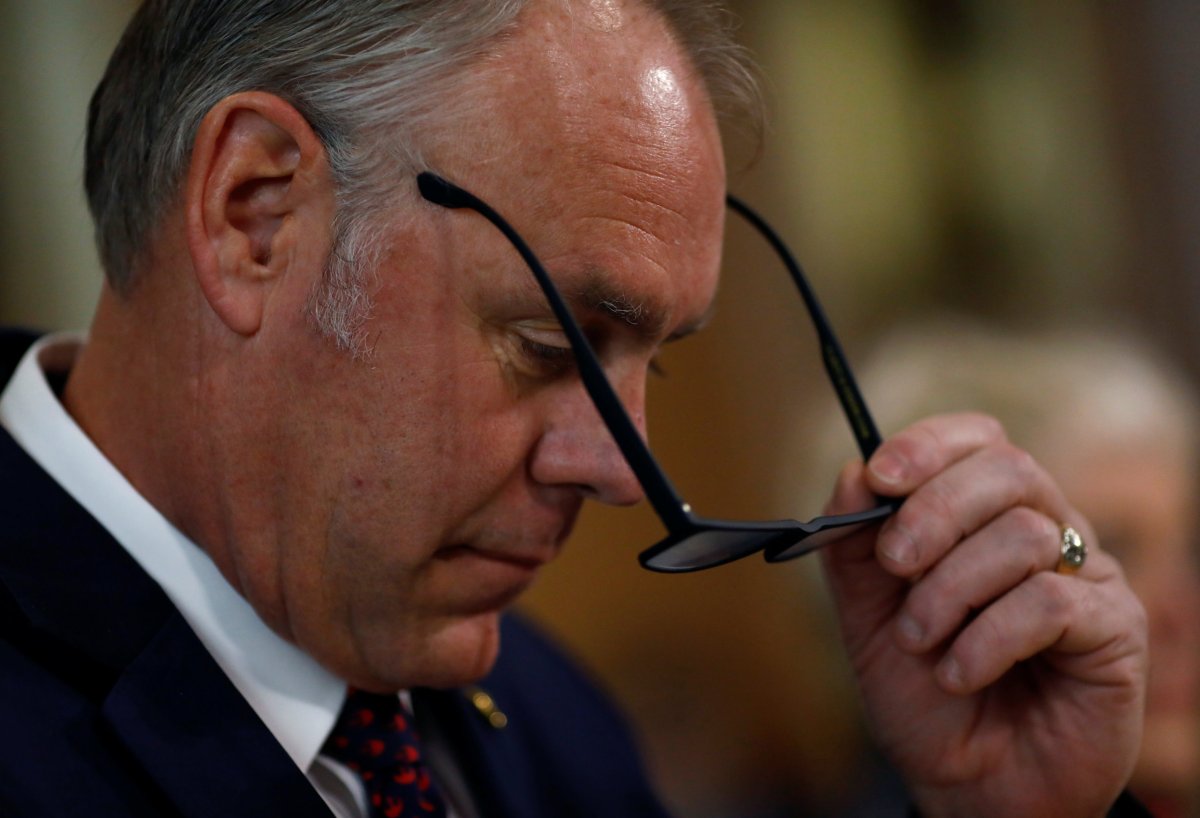By Valerie Volcovici
WASHINGTON (Reuters) – U.S. Interior Secretary Ryan Zinke on Tuesday defended his use of private planes and challenged reports of lavish spending, saying he was tired of “innuendo” and “insults.”
Zinke, who spoke before a Senate committee, has been dogged by the release of details of his use of charter planes and helicopters for travel, as well as recent receipts showing the department spent more than $130,000 to install new doors at his office at a time of proposed budget cuts and fee hikes at national parks.
“I resent the fact of your insults, and I resent the fact that you mislead,” Zinke told Senator Maria Cantwell, the top Democrat on the Senate Energy Committee, after she pressed him on his spending.
The hearing concerned the Interior Department’s 2019 budget. Zinke also got heat from senators for proposals to raise national park visitor fees, expand offshore oil drilling, and lower royalty rates paid to the U.S. government by oil and gas companies to encourage more production.
“I never took a private jet anywhere,” Zinke added, saying it was “innuendo” to suggest he was on a luxurious private plane when he instead took charter propeller flights.
Zinke said his Democratic predecessor, Sally Jewell, also racked up significant expenses traveling to remote parts of the country.
“She took private charter airplanes and took helicopters. As interior secretary she was out hiking and doing what she was supposed to be doing,” Zinke said.
Senators asked if the Interior Department has sufficiently analyzed a proposal to cut the royalty rate for offshore drilling by a third to 12.5 percent. Zinke responded that the data so far is “inconclusive” and a decision had not been reached yet.
“I would say there is an argument (for cutting),” Zinke said. “There is an argument on the other side too.”
U.S. oil production has soared in recent years as a result of advances in drilling technology, but the increase has occurred mainly on private, rather than federal, lands.
Zinke also faced questions from Louisiana’s Republican Senator John Kennedy, who was concerned about the impact of cutting royalties on Gulf Coast states that rely on the revenue to support coastal restoration projects.
Last October, after Louisiana was lashed by powerful hurricanes, the state’s share of offshore drilling royalties turned out to be half the $175 million it expected.
Zinke said he would supply the committee with data when available.
Zinke also took some heat from senators opposed to his January proposal to open up 90 percent of federal waters to drilling between 2019 and 2024. The proposal is opposed by Democratic and Republican lawmakers in a dozen states.
Washington state’s Cantwell accused Zinke of playing politics when he told Florida Governor Rick Scott, who objected to drilling off of Florida’s tourist-dependent coastlines, that his state would be exempt from any expansion in drilling.
Zinke said the Florida decision is “still in the process” of being reviewed and that he would recognize the opposition of other states, like Washington, that are “passionately opposed to oil and gas drilling off their coast.”
(Writing by Richard Valdmanis; Editing by David Gregorio and Steve orlofsky)
















